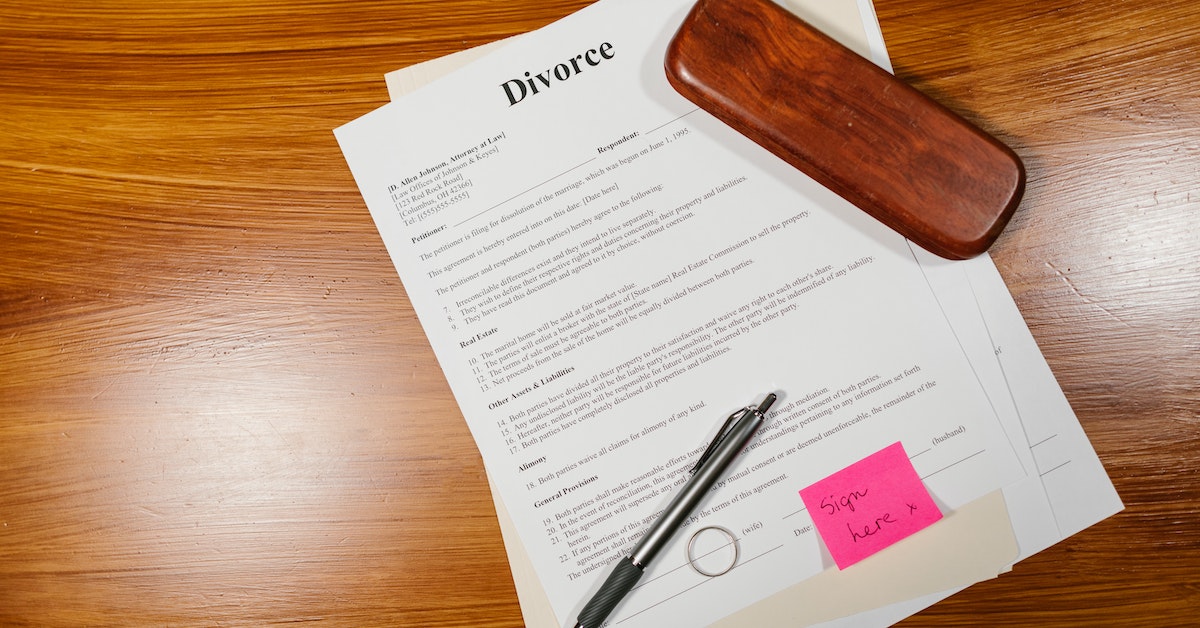You've probably heard that people are more likely to get divorced when they've already had previous marriages. In this post, we'll take a look at exactly how many third marriages end in divorce in Texas.
When you get married for the first time, you typically expect that it will last forever. Once you've been divorced once or twice and are getting married again, though, it can change your perception. New issues are introduced, and relationships can become more complex, which can make it more likely for subsequent marriages to dissolve.
This reality shows up glaringly in the statistics. While second marriages have a 60% chance of ending in divorce, nearly three out of every four third marriages are dissolved.
The divorce rate in Texas was 1.4 divorces per every 1000 individuals in 2021, according to the Centers for Disease Control and Prevention. Although this might make it sound like divorce is a rare occurrence in Texas, you have to remember that Texas is the second biggest state by population-- home to nearly 30 million people in 2021.

This means that more than 40,000 people were getting divorced in Texas during this year. Though this certainly sounds like a significant number of people, it's also worth noting that the divorce rate in Texas has dropped significantly since 1990, when there were 5.5 divorces per every 1000 individuals.
Are you interested in learning more about how many marriages in Texas end in divorce? Take a look at our guide to the divorce rate in Texas.
The number of divorces in 2021, according to the CDC, was 2.5 for every 1000 people. These stats include annulments in addition to divorces. This amounts to nearly 700,000 divorces across the country during this year.
Like the Texas divorce rate, the national divorce rate has been on the decline in the past several decades. During the early 2000s, the divorce rate across the country was four divorces per 1000 people.
Are you wondering if you'll be able to get alimony as a part of your divorce? Check out my post about how long you have to be married to get spousal support in Texas.
How long the average couple stays together after marriage has to do with a number of factors, including whether it's their first, second, or third marriage.

According to a recent analysis that looked at which states had couples that stayed married the longest, the average marriage length in Texas, overall, is 17.5 years.
The national average when it comes to the number of years couples stay married is 21 years for first marriages. The average length of second marriage is 17 years, while the average length of third marriages across the country is 13 years.
Did you start the divorce process but you're having second thoughts? Take a look at our article about how long a divorce can be put on hold in Texas.
Studies have found that it gets harder and harder to maintain a successful marriage when you are getting remarried after divorce. The larger the number of prior divorces a person has experienced, the less likely the marriage is to succeed.

According to some research, 67% of second marriages end in divorce across the country, while 73% of third marriages end in divorce.
In Texas, 6% of the population has been married three times or more. This is significantly lower than the states that top the charts in this category-- including nearby states of Oklahoma and Arkansas-- but quite similar to the national average of 5%. In Oklahoma and Arkansas, roughly 10% of the adults in these states who have ever been married have been married at least three times.
Other states are much less likely to have individuals who have been married and divorced so many times. For example, in Massachusetts and New York, only 2% of ever-married American adults have walked down the aisle at least three times.
To learn more about divorce in Texas, take a look at my posts about the requirements for getting divorced and what you should know about divorce mediation.
One might assume that individuals who are getting married a second or third time would be more likely to make subsequent relationships work, but this isn't statistically the case.

There are a number of reasons why second or third marriages are more likely to fail than first marriages, including:
Are you wondering what's going to happen to your marital estate in a divorce? Take a look at our guides on who gets the kids, who gets the house, and who gets the car in a Texas divorce.
According to research about divorce in the United States, most divorces will happen within the first eight years of marriage. Couples that have made it to the ten-year mark in their relationship are much more likely to stick together for the long haul.
If individuals do get a divorce, the average time between divorce and remarriage in the U.S. is between three and four years. Marriages that occur after divorce are statistically less likely to succeed than first marriages.
When two people walk down the aisle after having two previous marriages, their chance of getting divorced is significantly increased. This is true both in Texas and in the United States as a whole.
There are a lot of reasons that this could be the case, including:
All that being said, this doesn't mean it's necessarily foolish to get married for a third time. Everyone's situation is unique, and it may have taken these previous experiences for you to really find the right person. Just because the statistics are quite shocking when it comes to third marriages and divorce doesn't mean that you are doomed to be a statistic.
Are you looking for more resources to help you understand family law, marriage, and divorce in Texas? Check out our Texas Divorce Laws blog to help you understand your rights and responsibilities under the law.